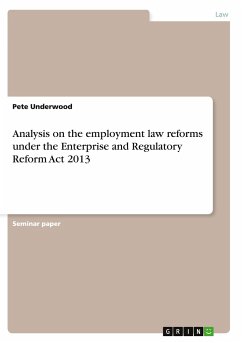Essay from the year 2024 in the subject Law - Miscellaneous, grade: -, , language: English, abstract: The "too big to fail" (TBTF) doctrine, where implicit or explicit government bailouts prop up systemically important financial institutions (SIFIs), has long been a subject of intense debate due to its profound legal, economic, and ethical implications. This Article examines the TBTF phenomenon, tracing its historical roots and dissecting its multifaceted impact on competition, systemic risk, and responsible risk-taking within the financial system. By meticulously analyzing domestic and international legal frameworks, regulatory challenges, and diverse stakeholder viewpoints, the Article provides a nuanced understanding of TBTF's complexities. Acknowledging the inherent dangers posed by TBTF, the Article proposes a multi-pronged mitigation strategy aimed at fostering a more resilient and sustainable financial system for all stakeholders. This strategy encompasses, amongst other things, refined resolution mechanisms, dynamic capital requirements, empowered regulators, responsible risk-taking incentives, and others. Furthermore, this Article emphasizes the need to address the root causes of TBTF. This includes empowering citizens through financial literacy initiatives to make informed investment decisions and redefining the purpose of finance to prioritize societal well-being over narrow profit motives. This multifaceted approach aims to build a more resilient, equitable, and sustainable financial system that serves the interests of all stakeholders, not just a select few. The Article concludes with a call to action, urging readers to engage in constructive dialogue and contribute their voices towards shaping a brighter financial future.
Hinweis: Dieser Artikel kann nur an eine deutsche Lieferadresse ausgeliefert werden.
Hinweis: Dieser Artikel kann nur an eine deutsche Lieferadresse ausgeliefert werden.








